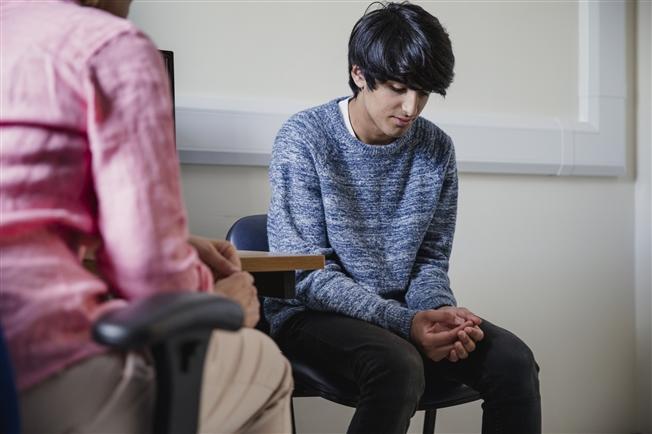How to recognize signs of depression in teenagers

Navigating your teenage years isn't easy. Between exploring new relationships, meeting academic demands, and dealing with puberty, being a teenager can be exciting, confusing and anxiety-inducing all at once.
It's no surprise, then, that a rising number of teens are struggling with depression. According to the Forum on Child and Family Statistics, 16% of the population ages 12–17 had at least one major depressive episode (MDE) in 2019. This was a higher rate of depression than was reported in previous years (2004, 9%; and 2014, 11%).
To qualify as suffering from an MDE, teens had to have experienced a depressed mood or loss of interest and symptoms lasting at least two weeks. Signs of depression in teenagers include:
- Trouble sleeping or sleeping too much
- Lower self-esteem
- Changes in appetite
- Changes in energy level
- Neglect of self-care
- Isolating behaviors
- Difficulty concentrating
Of course, as any parent of a teenager can attest, changes like these might not always be easy to notice. After all, it's not uncommon for your teenager to feel sluggish, act moody and even struggle with self-esteem.
How can you tell if these habits are just part of growing up, or if your teen is suffering from depression?
"One of the common signs of depression in teenagers may be increased isolating behaviors and withdrawing from activities and friends with whom they were once involved," says Michele Gallagher, MS, LPC, NCC, a psychotherapist at Mirmont Outpatient Center, part of Main Line Health. "Oftentimes we see adolescents spending a lot of time in their rooms with an increased focus on social media."
Failing grades and an overall lack of motivation may also be early indicators of depression symptoms.
Offering support when you see signs of depression in teenagers
Even if you've noticed changes in your child's behavior, it's not always easy to know what to do first. Having an open and honest conversation can be difficult and learning to truly listen to your child is imperative. It's necessary to convey to the child that it's a safe environment in which to share their feelings. Gallagher says it's always important for a parent or guardian to notify a behavioral health professional if the child is exhibiting one or more of the symptoms listed above.
If you notice your teen has fallen off the honor roll or is more withdrawn than usual, talk to other adults like guidance counselors, teachers and coaches to see if they, too, have noticed a difference. They might be able to provide clues as to what caused this change. For example, are dynamics changing on a team or in school? Are college visits approaching?
Armed with this knowledge, make time to talk to your teen. Ask them directly if there's something going on at home, at school or among their friends which may have caused a change. Often, they have an answer, says Gallagher, but parents need to be willing to listen.
"You and your child may disagree on many issues but what's important is that you make time to listen and understand the feelings. Also, convey to your child that there are professionals whose jobs are to help them feel better."
Seeking mental health treatment for your teenager
There are several different options for depression treatment. The severity of depression symptoms will help dictate which option is right for your teen.
If your child is mostly experiencing loss of interest or lack of motivation and subtle changes in their mood or behavior, one-on-one therapy can be a good first step. Sometimes, the opportunity to talk to a therapist who can provide an objective outlook on a situation is enough to help ease these symptoms and make your teen feel heard and understood.
Group therapy can also be beneficial.
"We've found that when teenagers are in a group with others who feel the same way, it's a validating experience," says Gallagher. "When you're at home and isolating yourself in your room, you feel alone and often think no one can understand what you're experiencing. But in group therapy, support and encouragement for one another quickly emerges."
If, however, your teenager's signs of depression are more severe or they have thoughts of harming themselves or others, inpatient hospitalization or partial hospitalization may be necessary. Your child's doctor or a behavioral health professional can conduct a depression screening to help you better understand what level of care is appropriate.
Regardless, it's important to take the first step.
"When depression symptoms progress, it is typically harder to treat; therefore, early intervention is recommended," says Gallagher.
Compassionate mental health care close to home
Mental and emotional well-being are integral to a healthy life. When people suffer with mental illness, it significantly impacts all aspects of their lives, including family, relationships, employment, leisure activities, and the basic satisfaction experienced from fully participating in life. Main Line Health Behavioral Health provides programs and services that help people work through the issues that are keeping them from engaging in life.
To schedule an appointment with a specialist at Main Line Health, call 1.866.CALL.MLH (225.5654).
 Content you want, delivered to your inbox
Content you want, delivered to your inbox
Want to get the latest health and wellness articles delivered right to your inbox?
Subscribe to the Well Ahead Newsletter.
